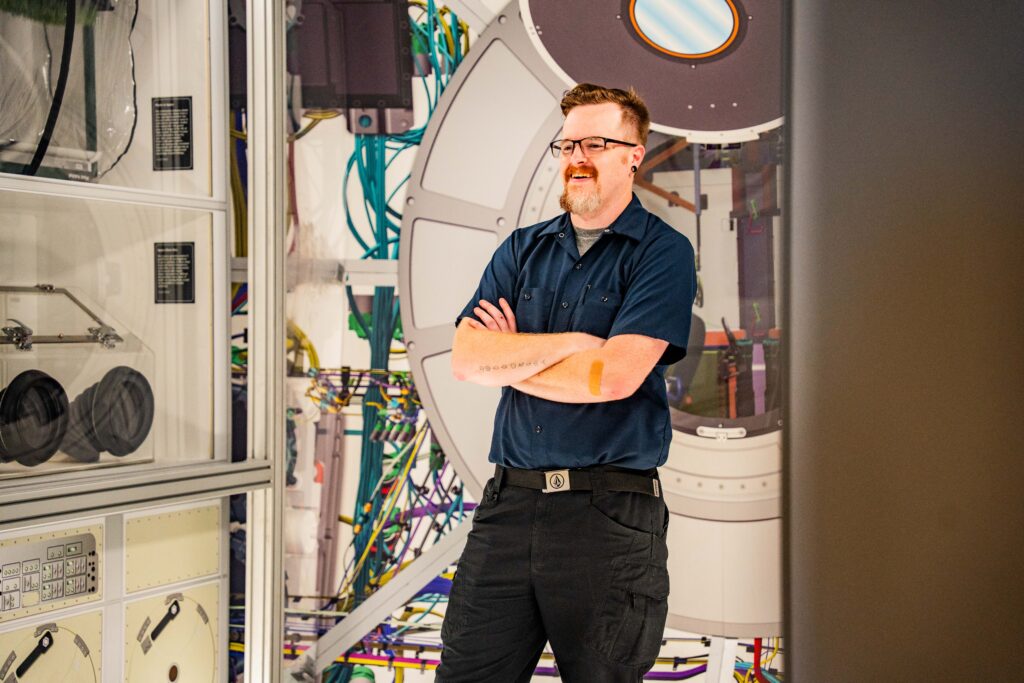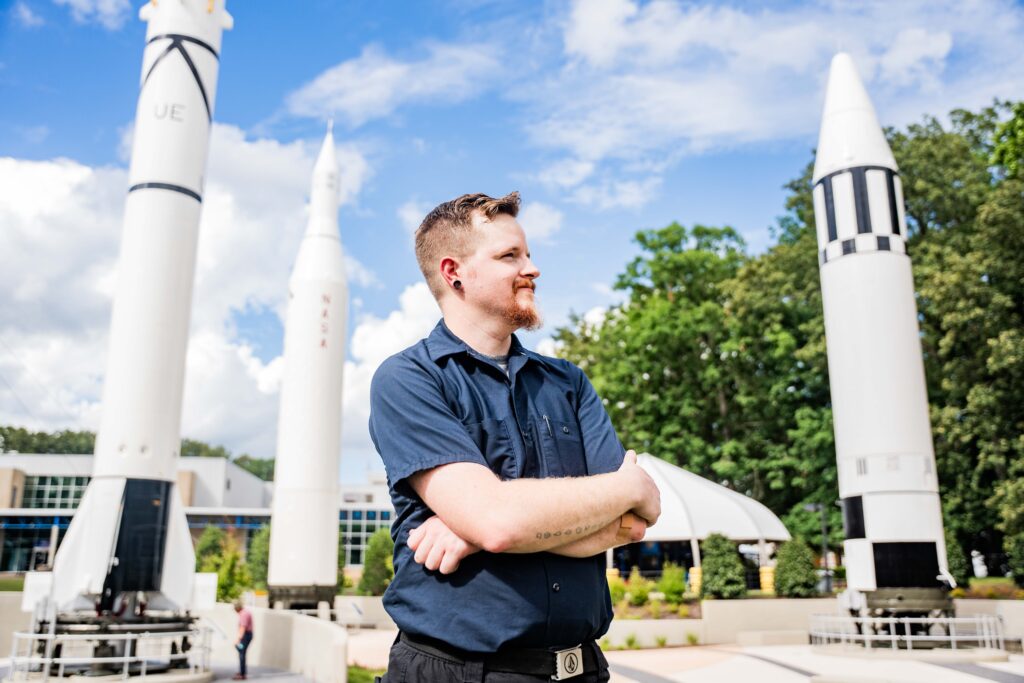Reviewed by: Sharron Swain
How Huntsville influenced these 2 remarkable young women
Reading time: 4 minutes
Sponsored

It’s not everyday you get to sit down and talk to two Emmas about a fascinating, fast-growing career field.
Read on to learn why they chose to study Applied Biotechnology at Auburn’s College of Agriculture, their ties to Huntsville and how they can go on to earn six-figure salaries.
1. Hands-on approach to genetics

Emma S. and Emma W. have always been fascinated by genetics.
In seventh grade, Emma S. learned about Punnett Squares and immediately fell in love with genetics. Emma W. attended a class at Huntsville’s Hudson Alpha and quickly firgured out Applied Biotechnology was the field for her.
Both Emmas value how Auburn’s Applied Biotechnology program has taken their love for genetics and transformed it into hands-on skills and practical application.
“In our labs, we learn how to clone DNA and apply that to plant research. I always knew I wanted to study a science-based field, and Auburn was the perfect fit for me. Because it’s a research institute, the university offers incredible facilities and opportunities.”
Emma Stough
“Right now, I’m working in a plant pathology lab, identifying factors that cause infections in plants. It’s fascinating how we use genetics to sequence different bacteria or types of fungi that infect plants.”
Emma Wingfield
2. Applied Biotechnology’s Huntsville ties

As a Madison native, Emma. W enjoyed taking classes on plant genetics at HudsonAlpha—a top biotechnology institute—during her high school years.
The more she learned about applied biotech, the more the industry intrigued her.
“I immediately started researching local colleges that offered an undergraduate degree in Applied Biotechnology and found out Auburn College of Agriculture was the only university local to me that offered it. I knew it was the school for me.”
Emma Wingfield
If you’re looking for a hands-on scientific career field, check out Applied Biotechnology at Auburn and find out how you can save on tuition through Path to the Plains.
3. Amazing career opportunities

Applied Biotechnology graduates are not limited in their career options. Emma S. is in the process of applying to pharmacy school, and Emma W. plans to work for an extension service to help farmers and gardeners understand the science behind their crops.
Check out other successful career fields Applied Biotechnology majors may enter:
- Environmental Science
- Biological, Biomedical or Biotechnological Research
- Biomedical or Biotechnical Engineering
- Genetics
- Product Marketing
- Product Safety Management
- Seed Product Development
- Sustainability Management
- Clinical Trial Management
- Biofuel or Bioproduct Development
Save on tuition through Auburn’s Path to the Plains

Auburn’s College of Agriculture is known for its hands-on approach to science, and the Applied Biotechnology degree is a great way to forge your own path in the agricultural industry.
“This major has been really helpful to me because you have the opportunity to choose the electives that will serve you best and fit your interests. I’m interested in plant pathology, so I get to take Soil Science Plant Biology, but if you’re an Animal Science major, you could take Animal Science electives. There are so many different avenues you can take within the major.”
Emma Wingfield
Now that Applied Biotechnology is a part of Auburn’s Path to the Plains, you can save significant money on the program by taking general courses at one of Auburn’s partnering community colleges—Southern Union State or Lurleen B. Wallace (program will be available spring 2024 at SUSCC).
Get ready to reach your career goals faster.
Ready to launch your career in Applied Biotechnology? See if you qualify for Auburn’s Path to the Plains program today.
Sponsored by:




